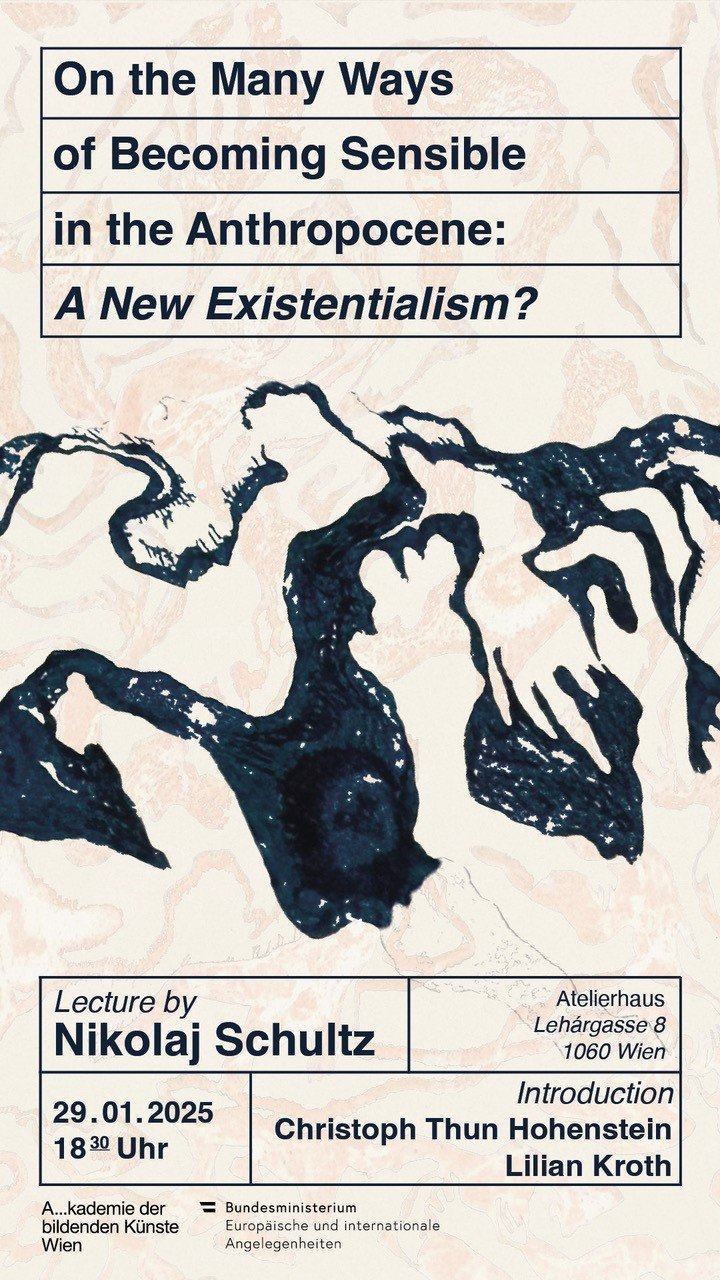Nikolaj Schultz: On the Many Ways of Becoming Sensible in the Anthropocene: A New Existentialism
Cordial invitation to a lecture by Nikolaj Schultz, with an introduction by Christoph Thun-Hohenstein and Lilian Kroth.
Nikolaj Schultz is a sociologist whose research explores the social implications of climate change within contemporary theory. He currently teaches and conducts research at both Sciences Po in Paris and the University of Copenhagen. Schultz was a close collaborator of the late philosopher Bruno Latour.
He is co-author, with Latour, of On the Emergence of an Ecological Class (Polity Books, 2022), which is being translated into ten languages. His most recent book, Land Sickness (Polity Books, 2023), is currently being translated into six languages
Christoph Thun-Hohenstein is a cultural manager and diplomat. He led the Austrian Cultural Forum in New York and was General Director of the Museum of Applied Arts (MAK) in Vienna for ten years. Since November 2022, Thun-Hohenstein has been Director General for International Cultural Relations at the Austrian Foreign Ministry. He also initiated the Vienna Climate Biennale.
Lilian Kroth is a Postdoctoral researcher at the Department of Philosophy at the University of Fribourg (CH), and works at the intersection of history and philosophy of science and art. In her current projects, she engages with vertical knowledge and remote sensing technologies, (“Aerial Spatial Revolution”, 2024-2027; “Seeing like a Satellite. Drawing as a Research Method to Investigate Icy Environments”, 2025; Swiss National Science Foundation). Her PhD project at the University of Cambridge engaged with Michel Serres’s philosophy of limits. She was an associated researcher at the Centre Marc Bloch (Berlin), at the University of Groningen, and one of the organizers of the CRASSH research network “Remote Sensing. Ice, Instruments, Imagination” in Cambridge. Prior to that, she studied Philosophy at the University of Vienna (BA, MA) and Fine Arts at the Academy of Fine Arts Vienna.
